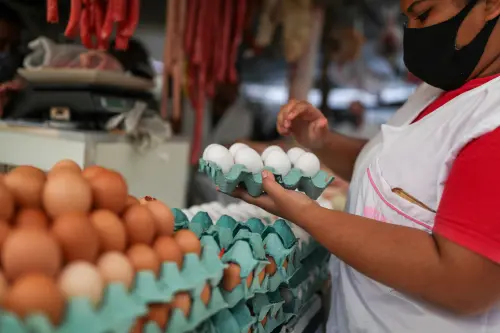Brazilian egg exports, encompassing fresh and processed products, surged by 57.5% in February, as reported by the Brazilian Animal Protein Association (ABPA) on Wednesday. The spike was attributed to heightened demand from the United States.
A total of 2,527 tons were exported in the second month of the year, marking an increase from 1,604 tons in the same period last year. The export value of Brazilian eggs amounted to $4.936 million, showing a 63.2% surge compared to the previous year.
Rising egg prices in the U.S. due to avian flu outbreaks led to increased imports and bolstered Brazilian suppliers, the world's largest chicken exporter.
The first two months of 2025 saw a 38% increase in exports to 4,884 tons. During this time, export revenue spiked by 41.8%, reaching $9.122 million.
The United Arab Emirates, the primary export destination, saw a 2.6% decrease in imports in February, while the United States experienced a substantial 93.4% rise, importing 503 tons. Meanwhile, Mexico welcomed 252 tons, and Japan imported 215 tons, marking an 111.3% increase.
Brazil, initially permitted to export eggs solely for pet food production in the U.S., was granted new permits in January for egg processing for human consumption in the U.S.
Santin, the head of ABPA, revealed that Brazilian eggs are not directly sold to U.S. consumers. Brazil's egg production is projected to rise from 57 billion eggs in 2024 to 59 billion in 2025, with exports accounting for less than 1% of domestic production.
ABPA estimates that this year's egg exports will reach between 30,000 and 35,000 tons—below the all-time high of 37,000 tons in 2009.
